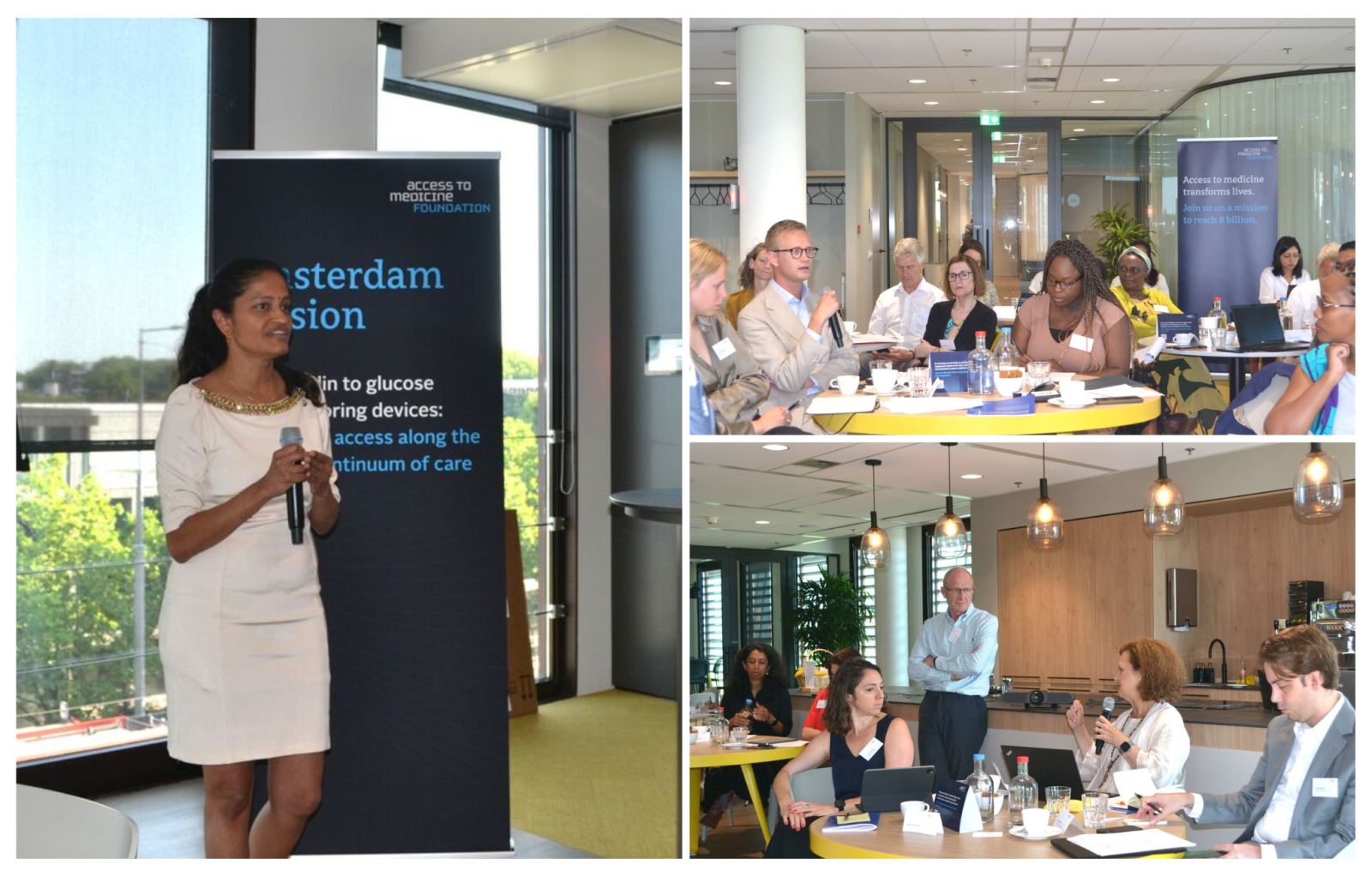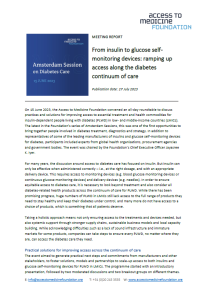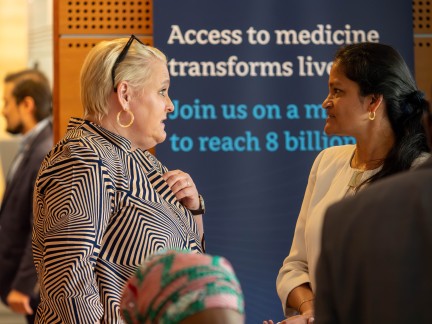2023 Amsterdam Session outlines five ways to ramp up access to essential diabetes products
Huge numbers of insulin-dependent people living with diabetes in low- and middle-income countries (LMICs) do not yet have affordable, sustained access to the full range of products they need – from insulin to blood glucose monitoring devices.
A diverse group of experts came together for an all-day workshop to identify practical solutions and holistic approaches, looking at what insulin and device manufacturers can do to expand access in LMICs.
The discussion is captured in a new meeting report, available for download.

For many years, the discussion around access to diabetes care has focused on insulin. However, it is vital to consider access issues in LMICs more holistically, because insulin can only be effective when administered correctly – i.e., at the right dosage, and with an appropriate delivery device. Ultimately, in order to stay healthy and keep their diabetes under control, people living with diabetes need affordable, reliable access not just to insulin, but also to monitoring devices (e.g. blood glucose monitoring devices) and delivery devices (e.g. needles).
As highlighted during a workshop convened in Amsterdam in June 2023 as part of the Foundation's series of "Amsterdam Sessions", there are a number of ways to ramp up access to essential diabetes products along the continuum of care. Participants from leading manufacturers of insulins and glucose self-monitoring devices, as well as from global health organisations, procurement agencies and government bodies, explored some of the underlying challenges in expanding access to diabetes care in LMICs. Drawing on their experiences so far, they shared insights about how these challenges can be tackled, mitigated and overcome.
“There is an opportunity for companies to learn from each other, especially from the access approaches and models already deployed by insulin manufacturers in LMICs, and for them to work constructively with governments and their partners to increase affordability and reduce fragmentation in how they provide access to their products”
Across the wide-ranging discussion, there was consensus that taking a holistic approach – and achieving equitable access to diabetes care – requires not only providing access to treatments and devices, but also strengthening supply chains, exploring and implementing sustainable business models, and building capacity locally.
In particular, participants noted the need to ensure the sustainable supply and distribution of insulin and devices to ensure these products reach the people who need them, at prices they can afford. For instance, even if a product is available on the market in a given country, people living with diabetes may need to travel long distances to collect insulin or access a monitoring device, and when they arrive they might find the product is no longer available. They may also find that prices are marked up, for example at a local pharmacy.
There was also a clear call to action for all parties to involve people living with diabetes in discussions around access to insulin and glucose self-monitoring devices, in government-led or company-led initiatives, and in the development of new business models. People living with diabetes need to be integrated in the ecosystem and empowered in their own care.
Five ways to scale up access to essential diabetes products
The event was held under the Chatham House Rule, with the outcomes of the discussion and key takeaways included in a meeting report. The report captures different points of view, as well as the practical solutions and approaches that companies – both manufacturers of insulin, and manufacturers of blood glucose monitoring devices – can consider or implement. Supportive actions that other stakeholders (e.g. governments) can take are also included.
The contents of the discussion are grouped within five key takeaways:
Companies can look at care more holistically; keep the patient perspective at the centre; support patient education, where ethical and appropriate; support efforts to improve diagnosis and create clarity about demand.
Companies can move beyond philanthropy; develop financially sustainable business models; monitor and evaluate new approaches; consider facilitating factors for LMIC-specific business models; develop quality-assured products specifically for LMICs; engage in local manufacturing to ensure sustainable supply; collaborate to increase impact; collect more accurate data in LMICs; explore digital solutions that work for people in LMICs.
Companies can increase access to devices across all levels of care; ensure devices supplied in LMICs are quality-assured; address affordability; ensure continuous glucose monitoring devices are part of the discussion about access in LMICs; bring insulin and devices together.
Companies can understand the current state of the supply chain through research and data collection; learn from supply chain management and distribution in other areas; partner with local manufacturers and distributors to minimise mark-ups; engage in local manufacturing; use digital tools to increase supply chain traceability and accountability.
Companies can show the value of diabetes care; support training of healthcare professionals to improve sustainability; communicate needs in terms of procurement processes in LMICs; coordinate to help governments navigate initiatives.
About the Amsterdam Sessions and the Foundation's Diabetes Care Programme
Through moderated workshops and panel discussions, the Foundation provides space for people working with and within the healthcare ecosystem to come together and discuss how to expand access to essential health products in LMICs.
The Foundation has organised Amsterdam Sessions and other workshops on topics including access to high-quality generic medicines, shortages and stockouts of lifesaving products, access to medical oxygen, and lessons learned from COVID-19.
This Amsterdam Session is part of the Foundation's Diabetes Care Programme, and followed on from a previous workshop in July 2022. The Programme also published a research report in October 2022 on how the drugmakers that dominate the world's insulin market can scale up access efforts globally.


